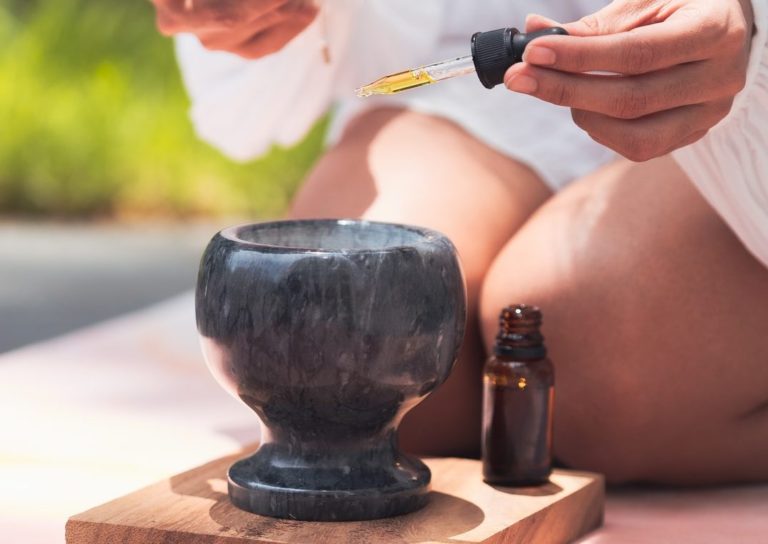Some essential oils stand out in the realm of first-aid treatments
There are many essential oils that have a significant impact on our lives on a daily basis. Some essential oils especially stand out in the realm of first-aid treatments.
Some of these oils have disinfectant properties, while others can reduce pain and inflammation. Some oils are even excellent for those with respiratory issues.
People use Essential oils to treat a wide range of first aid issues, but there are some that are more appropriate than others. Listed below are the essential oils that are best for first aid treatments.
Lavender Oil
Antiviral, antibacterial, anti-fungal, and relieves pain naturally
Lavender oil would clearly be the choice if you had to pick just one oil to have on hand at all times. Some people use this oil to treat a variety of burns, including sunburn and electrical burns. It’s soothing, so it’ll help everyone remain cool and calm.
Antiviral, antibacterial, anti-fungal, lavender also relieves pain naturally. It promotes healing, inflammation reduction, and a long list of other ailments and conditions.
Lavender oil has analgesic effects
Lavender oil has analgesic effects that may help with minor pains or discomfort in muscles or joints. It is also effective against respiratory issues, especially if you suffer from coughs or colds.
It’s also beneficial for the digestive system
It’s also beneficial for the digestive system and works wonders on insect bites, rashes, wounds, hair care, respiratory issues…the list of lavender oil benefits goes on and on.
Tea Tree Oil
Powerful antiseptic and disinfectant
Tea tree oil is a powerful antiseptic and disinfectant, making it useful for treating wounds. It fights infections of all kinds and is an excellent respiratory aid. If you have an open cut or wound, first wash the wound thoroughly, and then apply tea tree oil to keep the infection from growing.
Known for its anti-fungal properties
Known for its anti-fungal properties and is often used to address fungal infections of the feet, athlete’s foot, and ringworm. It may also be helpful for stubborn candida infections.
An excellent disinfectant
Tea tree oil is an excellent disinfectant, and people use it to treat minor wounds. It has a wide spectrum of activity in dealing with a variety of bacteria, such as E. coli and Staphylococcus aureus, making it effective for the treatment of moderate to severe acne.
A natural antiseptic
Tea tree oil is a natural antiseptic that fights infections caused by bacteria or viruses, as well as fungus and other diseases. It’s an excellent respiratory aid, whether you are suffering from a cold, the flu or an ear infection.
Clove oil
Well-known for dental health
Because dental emergencies can strike us at the wrong time, even on evenings or weekends, it is wise to keep clove oil on hand for whenever it might be necessary to relieve tooth pain while waiting for a dental appointment. You mix it with an edible carrier oil such as coconut oil and applied directly to the tooth where you are experiencing pain.
Used to treat infections
Clove oil is a wonderful complement to doTERRA’s CPTG Certified Pure Therapeutic Grade® essential oils. It can be used to treat infections, chronic pain, wounds, colds and flu symptoms, and the digestive system.
May help with dental emergencies
It has a sweet and warm aroma and it may help with dental emergencies. Clove oil also has anti-inflammatory, antiseptic, and antibacterial properties that can help fight infections.
Eucalyptus Oil
Eucalyptus oil a must have for your first aid kit
This is the oil that should be included in your first-aid kit if you experience sudden symptoms of a cold or flu. It can assist with a variety of sinus issues.
Insect bites
It is also handy to have available in case of insect bites. It is highly concentrated and can be toxic when exposed to too much of it, so always dilute it and never use it straight from the bottle. Make sure you have a carrier oil to mix it with before applying, such as coconut oil.
Eucalyptus is effective against respiratory problems
Eucalyptus is effective against respiratory problems. It can lower fevers, soothe coughs and reduce inflammation in the sinuses. Eucalyptus is an antioxidant that also has anti-inflammatory properties
Pepperment Oil
Peppermint oil is both analgesic and anti-inflammatory
Peppermint oil is both analgesic and anti-inflammatory, making it a wonderful pain reliever. People use it for its ability to ease digestive discomfort. Peppermint’s most common uses are in the treatment of indigestion, heartburn, nausea, vomiting, and stomach aches.
To relieve pain
The best way to relieve pain with peppermint oil is to dilute some drops with a carrier oil and rub it on the affected area. This will also help fight infections and reduce inflammation, making peppermint essential oil a good addition to your first aid kit.
Wintergreen Essential Oil
Analgesic and anti-inflammatory
It has a powerful aroma that may be helpful when you are suffering from respiratory issues or have an inflamed stomach. Wintergreen is analgesic and anti-inflammatory like peppermint oil, but it’s especially useful for arthritis pain.
Reduce pain due to arthritis
Wintergreen oil can help reduce pain due to arthritis, muscular aches, and menstrual cramps. We use this essential oil for coughs, colds, sore throat, sinusitis, and headaches.
Frankincense
The “king of oils.”
It is more expensive, but it’s a necessary component in any emergency first-aid kit, its soothing effects can be beneficial in stressful situations.
Useful for respiratory problems
Useful for respiratory problems, frankincense can be used to treat asthma, bronchitis, coughs, and colds. This essential oil can also help with inflammatory issues in the digestive system or urinary tract.
Chamomile
A natural painkiller
Chamomile is known to be a natural painkiller, for this reason, it is useful as a standard oil in anyone’s first aid kit.
It can also help soothe skin
It can also help soothe skin, which is helpful in situations such as rashes, insect bites, and bee stings. Chamomile oil also has anti-inflammatory properties. This would be a good oil to have on hand for strains and sprains.
Helpful in treating various digestive issues
Chamomile is also helpful in treating various digestive issues such as indigestion, bloating, flatulence, stomach aches, and cramps. This may improve conditions such as irritable bowel syndrome.
Above are some of the finest essential oils
Above are some of the finest essential oils you can have in your first-aid kit. When we familiarize ourselves with these oils, their applications, and the circumstances in which they are of use to us before an emergency strikes, it just makes that much more sense.
You’ll be glad you took the time to prepare with some of nature’s finest medicines when you’re in a panic or dealing with an emergency.
Thank you for reading,
Peacefully Yours!

